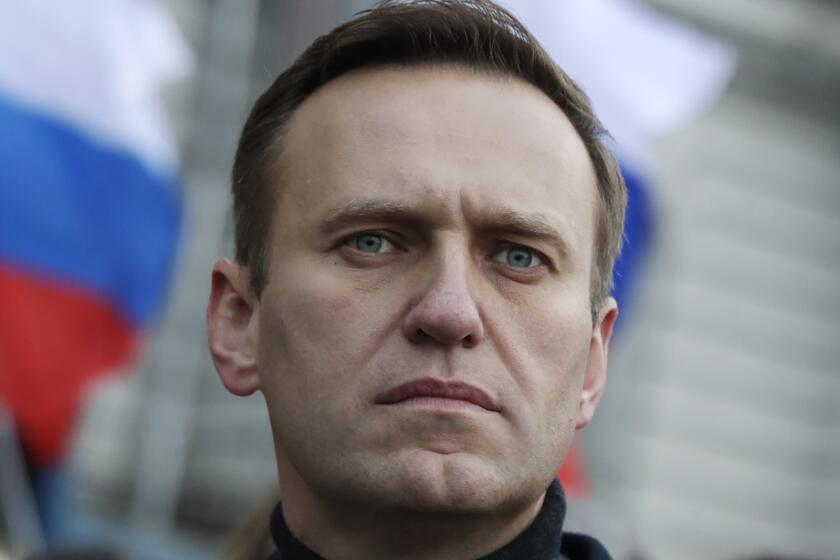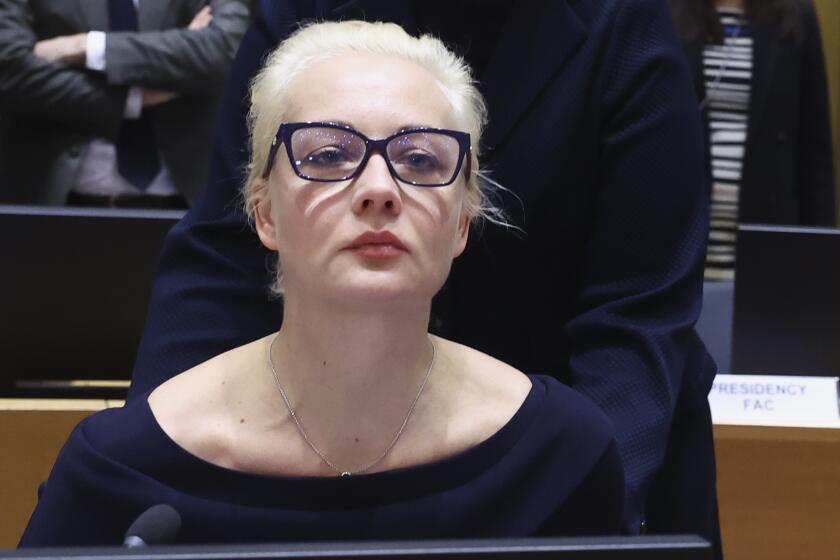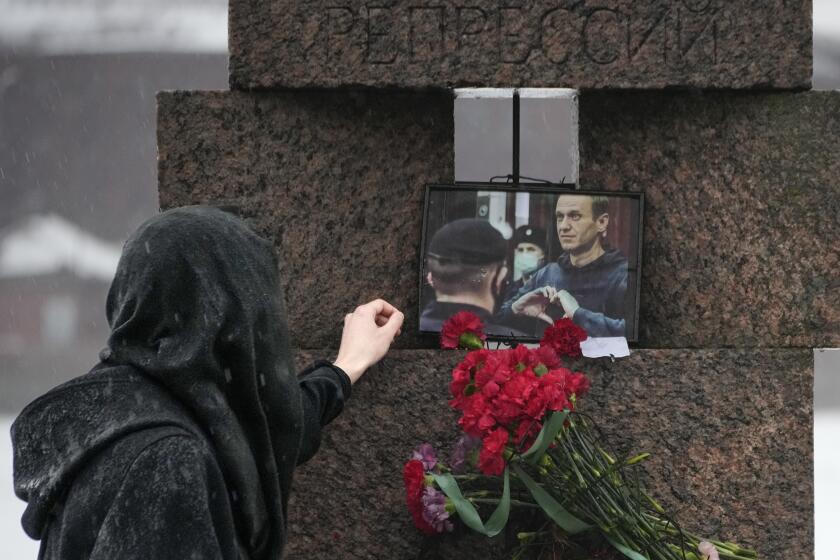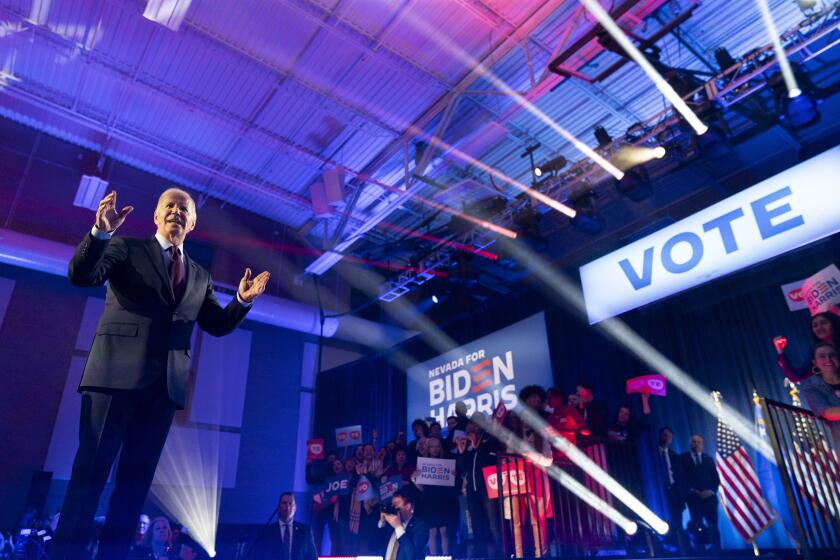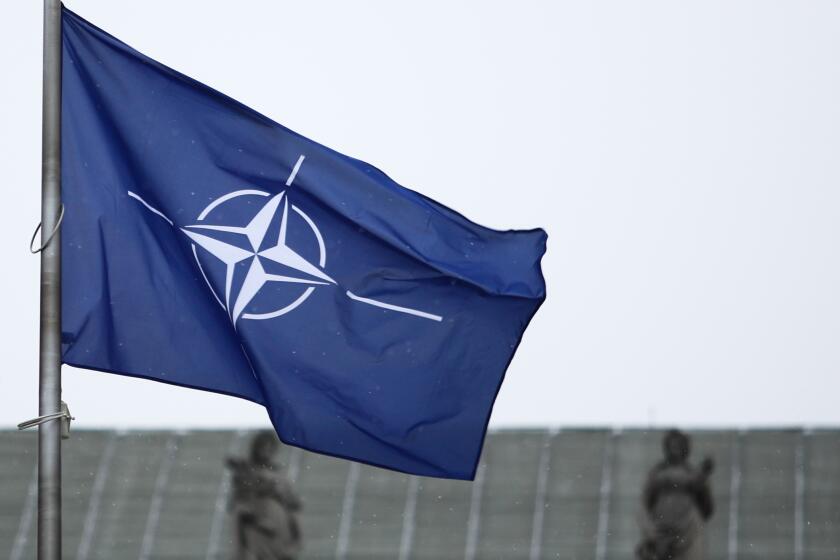Column: No, Donald Trump does not equal Alexei Navalny
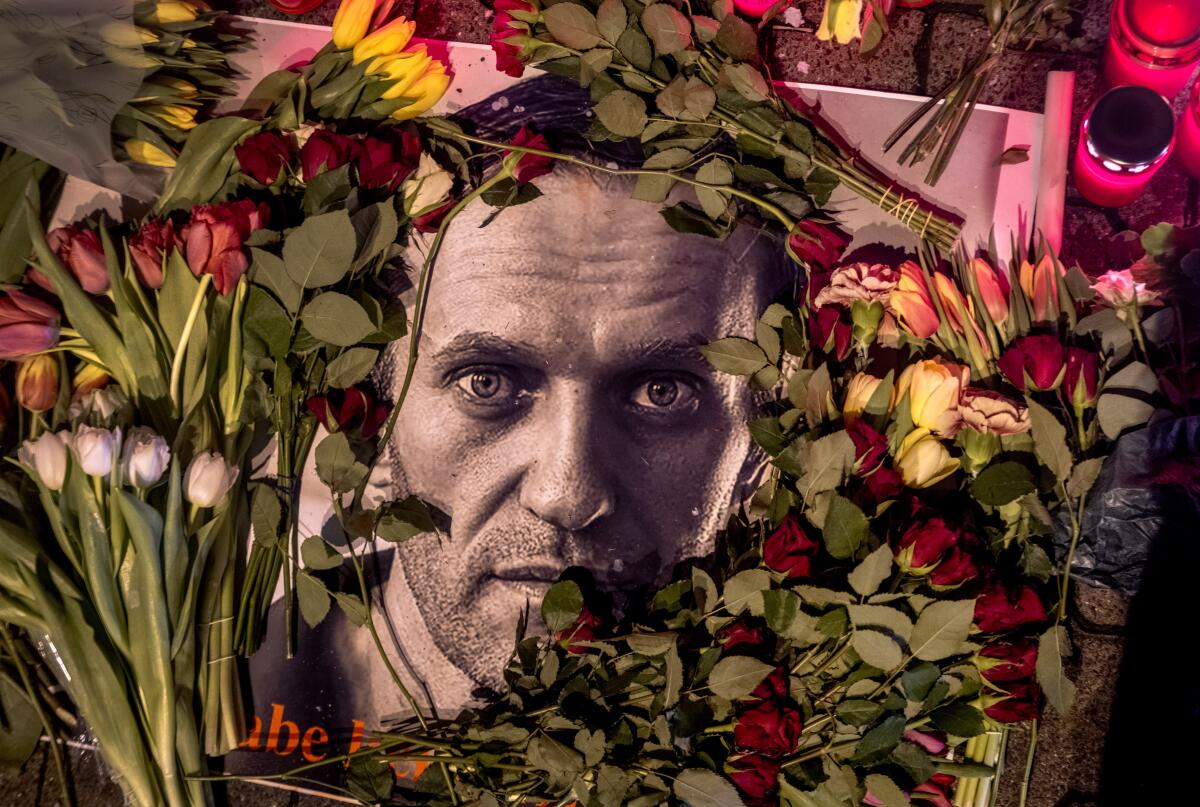
- Share via
Alexei Navalny didn’t simply die. He wasn’t just murdered. He was tortured to death.
It didn’t happen on the rack or mid-beating, but Vladimir Putin — who had tried to eliminate him earlier — slowly killed Navalny all the same.
Putin sent the Russian dissident and anti-corruption activist to the gulag with the aim of grinding him down with hard labor, isolation, hunger and shabby medical care, until he died. Russia’s claims that he died from “sudden death syndrome,” even if true, change nothing, given that being poisoned with a Soviet-era nerve agent (2020) and thrown into an Arctic labor camp (2023) presumably increases one’s chances of falling prey to SDS.
The question of whether the timing of Navalny’s death was deliberate matters geopolitically but not morally.
Alexei Navalny, Russia’s best-known opposition figure, has died in a prison colony, authorities say. Biden and other Western leaders blame Putin.
If Putin ordered Navalny’s death Friday, it might shed light on his state of mind. Was Putin sending a message in advance of next month’s “election” in Russia? Does that message reflect confidence or insecurity? Was Putin buoyed by his recent military successes in Ukraine or his related political victories in the U.S. Congress? Perhaps Navalny’s death was a thumb in the eye of the West timed to coincide with the Munich Security Conference?
Or, was he, as some Russian propagandists have speculated, somehow motivated by the insidiously insipid comments of Tucker Carlson a few days earlier?
The widow of Russian opposition leader Alexei Navalny vows to continue his fight against the Kremlin and to punish Putin for his death in prison.
On his way back from interviewing Putin and celebrating Russia’s superiority to America in a series of embarrassing videos about Moscow supermarkets and subways, Carlson appeared at a forum in Dubai. Asked why he hadn’t questioned Putin about the then-still-alive Navalny, Carlson shrugged and said, “Every leader kills people. Some kill more than others. Leadership requires killing people.” No doubt Putin agrees.
At minimum, if Putin didn’t want the world to know about Navalny’s death Friday, the world would not know about it. The revelation itself is a statement unto itself.
What Navalny’s death — and his life — say about Putin’s Russia should be obvious to anyone who doesn’t believe “leadership requires killing.”
Alexei Navalny’s team said they were still no closer to finding out where the politician’s body was being held.
What it says about the moral rot on parts of the American right is another matter. For numerous right-wing and Republican figures, the real lesson of Navalny’s killing is that “Navalny = Trump,” in the words of Trump-pardoned writer Dinesh D’Souza. “The plan of the Biden regime and the Democrats is to ensure their leading political opponent dies in prison. There’s no real difference between the two cases.”
Former House Speaker Newt Gingrich concurred, on X (formerly Twitter): Navalny’s death “is a brutal reminder that jailing your political opponents is inhumane and a violation of every principle of a free society. Watch the Biden Administration speak out against Putin and his jailing of his leading political opponent while Democrats in four different jurisdictions try to turn President Trump into an American Navalny. The hypocrisy and corruption of the left is astonishing.”
The president’s unpopularity would have once ensured his defeat. But that could be one of many old rules that won’t apply to the 2024 election.
D’Souza and Gingrich were hardly alone in indulging this grotesque exercise in Soviet-style propaganda. On Monday, Trump himself invoked the comparison on social media. His first mention of Navalny’s name wasn’t to condemn his death or Putin’s role in it, but to cast himself as an American Navalny. “The sudden death of Alexei Navalny has made me more and more aware of what is happening in our Country,” he declared before spewing the usual self-serving grievances.
Condemning such false moral equivalence was once central to American conservatism. Ronald Reagan’s United Nations Ambassador Jeane Kirkpatrick and National Review founder William F. Buckley led those denouncing the anti-Americanism inherent in equating undemocratic and democratic regimes. When someone told Buckley that the U.S. and U.S.S.R. were the same because they both spend a lot on the military, he replied, “That’s like saying that the man who pushed old ladies out of the way of an incoming bus is like the man who pushes old ladies into the way of an incoming bus. Both push old ladies around.”
Ask yourself why the case against the North Atlantic Treaty Organization made again and again by Donald Trump is built on so many lies.
Trump is not an innocent anti-corruption crusader brutalized and murdered for championing democracy and the rule of law. Nor does Moscow’s subway system — built with slave labor — pose some grand indictment of America, as Carlson insinuated.
There are ample plausible criticisms of the legal cases against Trump, but even if you agree with all of them (I don’t), the notion that Joe Biden is the moral equivalent of Vladimir Putin is a slander, not merely of Biden but of America itself. Indeed, one reason we know it’s not true: Publicly criticizing Putin’s treatment of Navalny can land you in a Russian cell. Criticizing Biden’s (alleged) treatment of Trump can land you in a Fox News studio.
More to Read
A cure for the common opinion
Get thought-provoking perspectives with our weekly newsletter.
You may occasionally receive promotional content from the Los Angeles Times.
